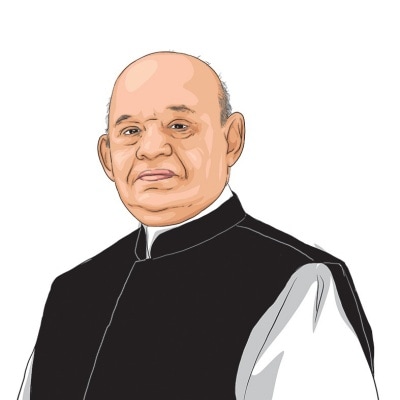Opinion Valuing the vote
How much can be interpreted from by-election results?....
The recent by-elections to the different state legislative assemblies have been a mixed bag of fortune for different political parties. A more realistic interpretation of the results
becomes possible when they are interpreted state-wise. It would be important to record that by-elections are often not a reflection of the performance of either the Central or state governments. These results are often guided by specific local circumstances in which that by-election was held and the factors that caused the by elections. The by-elections held to the 49 seats in 11 state legislatures in recent weeks bear testimony to this fact.
By-elections are caused by a clutch of factors. The seat may have fallen vacant as a result of the death of the sitting legislator. Alternatively the resignation of the MLA either on his/ her election to another representative body or on their shifting party loyalties and thus vacating the seat could necessitate a by-election. Often legislators are known to resign their seat to permit a senior party leader to get elected to the legislature.
Finally,a seat could fall vacant as a result of the disqualification of a sitting member. In the recent round of by-elections most of the seats fell vacant as a result of the sitting MLAs resigning their seats on their election to the Lok Sabha.
It has been noticed that when a by-election is held on the death of a legislator,the party to which the MLA belonged often nominates his/ her close relation to contest the by-poll. In most cases,the sympathy factor works in favour of the relation so nominated. The recent by-election in Andhra Pradesh is a case in point. Thus,the result is clearly limited to the specific circumstances in that particular constituency and is not a referendum on either the state or Central government.
When legislators vacate their seat on being elected to another representative body,the by-poll results could assume different dimensions. It often becomes a prestige battle for those vacating the seat. The results are often linked to the popularity of the leaders who vacated the seat and their capacity to convince voters to support the persons nominated by the party in their place. Often,the by-elections result is a barometer of the popularity of candidates/ parties in the fray in that specific constituency. The sympathy factor could work in favour of a candidate who has consistently lost a seat. It happened this time in Chittapur in Karnataka. Many years earlier,this happened in the New Delhi Lok Sabha seat when the victorious candidate L.K. Advani resigned the seat after having defeated Rajesh Khanna who was a candidate from the Congress. The voters elected Khanna in the by-poll setting aside the claims of the BJP candidate who replaced Advani.
More interesting is the case of the by-polls where the seat falls vacant as a result of the legislator resigning the seat on changing party affiliations. In Karnataka,in two seats,the by-poll was caused by Congress MLAs resigning their seats and contesting on the BJP ticket. Both of them were trounced at the hustings a clear indication of the displeasure of the electorate with the party hopping gymnastics of political leaders. In Bihar,four of the by-polls were caused by the sitting MLAs resigning their seats on changing party affiliations. In three of these seats,the party to which the former MLA had moved to was not in a position to win the seat.
The by-poll results in every state show a different trend. In Gujarat,the ruling BJP was able to win five of the seven seats in which by-elections were held largely on account of the sitting MLAs being elected to the Lok Sabha. The BSP put up a good show in UP winning all but one of the seats in which by-elections were held. In Tamil Nadu,with the AIADMK-led alliance boycotting the polls,it was a near sweep for the DMK-led alliance. In Karnataka,the ruling BJP did concede ground to its political rivals,especially in seats where those who joined their party from the Congress contested on the BJP ticket. In West Bengal,the Trinamool Congress won both the seats. The fact must be recorded that both seats were earlier held by its electoral ally,the Congress,and the victory does not indicate a foray into Left bastions. In Bihar,15 of the 18 seats went to the polls as the sitting MLA had been elected to Parliament. Thirteen of these seats were held by those from the NDA (10 from JDU and three from the BJP). The ruling alliance was able to retain only four of these seats. It is thus a clear loss of face for the ruling alliance in the state.
Beyond a shadow of doubt,by-election results mirror local specificities and cannot be seen as a referendum on either the state or the Central government.
express@expressindia.com





